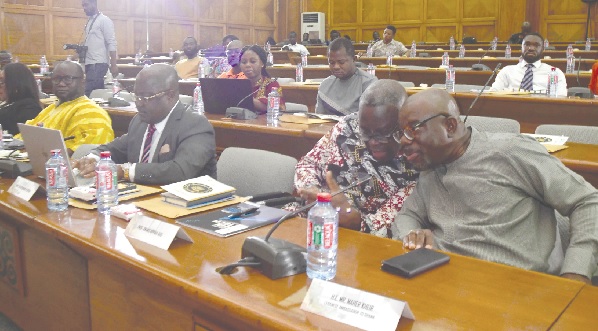
Collaboration necessary for digitalisation agenda - Prof. Appiah-Adu to stakeholders
THERE is the need for collaboration between the public and the private sector to help accelerate the country’s digital transformation agenda, a senior Policy Advisor at the Office of the Vice-President, Prof. Kwaku Appiah-Adu, has said.
“Public-private partnerships can form the cornerstone of a successful move to digitisation. It is an effective strategy for bringing together the resources and technical expertise needed to deliver on digital transformation goals,” he said.
Appiah-Adu added that public, private partnership (PPP) was imperative since it combined innovative efforts of the private sector, forward- thinking policies of the government with support from academia and encouragement from civil society actors to develop strategies to improve digitalisation of the economy.
Prof. Appiah-Adu was speaking at the second edition of the Made in Ghana summit in Accra yesterday on the theme: “The role of public-private partnerships in sustainable digital transformation.”
The participants were more than 200 public and private sector chief executives, captains of industry, policymakers and entrepreneurs as well as some members of the diplomatic corps.
Among issues discussed were the government's digitalisation, industrialisation and business development agenda.
Prof. Appiah-Adu said there was the need for government agencies to change their operations to centre around a digital-first approach.
He, however, said a successful and sustainable large-scale digital transformation required more than quick fixes to faulty systems.
Digital agenda
The Chief Executive Officer of the Ghana Chamber of Telecommunications, Dr Ken Ashigbey, said the digital agenda had become increasingly central to national policies and plans.
He, however, said it needed partnerships, adding “it is not enough for only the two sectors to collaborate, we need academia to form an integral part of this partnership”.
Currently, Dr Ashigbey said, the government was in the process of finalising the Digital Economy Policy (DEP) to regulate the information communication technology sector and also provide the rails on which other sectors would glide digitally.
He said to leverage the great potential of digitalisation for development “we need to take intentional strategic steps to ensure that we stop being consumers of technology and start producing technology and influencing how we use it to solve our contextual challenges”.
“We should exploit ways in which we can use technology to make our ways of doing business more productive and efficient,” Dr Ashigbey said.
